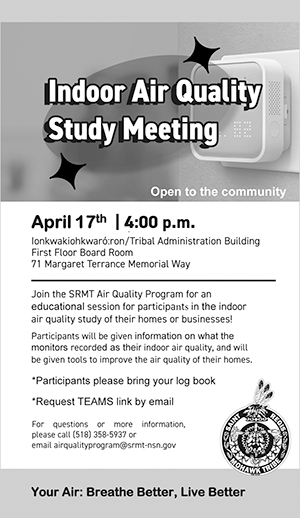News from around the Nations
Îles-de-la-Madeleine, Quebec, Canada
Quebec’s Minister of Sustainable Development, Environment and Parks, Mr. Pierre Arcand with Mr. Germain Chevarie, Member of the National Assembly for Îles-de-la-Madeleine, announced an agreement to conduct a study on the creation of a marine protected area in Îles-de-la-Madeleine. In so doing, the governments of Canada and Quebec are acting on their mutual desire to further understanding of the unique biodiversity in Îles-de-la-Madeleine in the Gulf of St. Lawrence. The announcement is part of the larger St. Lawrence Action Plan 2011–2016, which calls on Canada and Quebec to work together to protect and enhance the St. Lawrence River. This agreement is aimed at setting out how the governments of Canada and Quebec will cooperate to publish an evaluation report within two years. The study will look specifically at the ecological, economic, social, and cultural features of the area; conservation issues and related sectors of interest; and the opportunities and limitations related to establishing marine protected areas. The concerns of island residents and aboriginal communities will be an integral component of the report.
Washington D.C., United States
President Obama met with a small and regionally diverse group of tribal leaders from across Indian Country. Also participating in the meeting were Secretary of the Interior Ken Salazar, Secretary of Health and Human Services Kathleen Sebelius, Secretary of Education Arne Duncan, and Associate Attorney General Thomas Perrelli. The tribal leaders in attendance had the opportunity to directly engage with the President on a leader-to-leader, government-to-government basis. They spoke about economic issues affecting their reservations and proposed some innovative solutions for developing sustainable economies focusing on building solar and wind projects, reducing regulatory burdens, expanding broadband and leveraging private sector investment, among others. Also discussed was the Executive Order on Improving American Indian and Alaska Native Educational Opportunities and Strengthening Tribal Colleges and Universities, which the President signed earlier in the day to improve education opportunities for Native American youth across the country.
Innu Takuaikan Uashat mak Mani-Utenam, Quebec, Canada
The Canadian Boreal Initiative (CBI) applauds the agreement announced by the Innu Takuaikan Uashat mak Mani-Utenam (ITUM) and Cap-Ex Ventures Ltd. This agreement will be the first of two between the two parties covering mining exploration activities on the company’s mining claims on ITUM territory. In addition to ensuring socio-economic benefits for ITUM and its members, the agreement includes support for the continuation of traditional activities in the territory, a commitment to the restoration of mining sites, a consultation process for future exploration activities, and the negotiation of an impact and benefit agreement before developing a mine. In Quebec, the provincial government is implementing its Plan Nord, an economic spin-off and social development project mostly based in traditional Aboriginal territories; the plan includes a commitment to protect at least half of the affected region.
Washington D.C., United States
Heeding calls from tribal leaders, the Obama administration announced that it supports a legislative amendment that would allow tribes to apply for federal disaster aid directly from the President of the United States, the same way states currently can. Under current law, only state governors can make official disaster declaration requests. Tribal leaders, citing past slow and bureaucratic disaster relief to their reservations, have pushed for this flexibility for at least a decade. They say that under current law tribes experience an unnecessary loss of valuable response time when they seek federal assistance after a catastrophic natural disaster or manmade incident. Federal Emergency Management Agency (FEMA) officials said that the decision to support increased tribal sovereignty came in response to concerns raised by Indian leaders based on specific disasters and slower-than-desired responses to them in recent years.
Ontario, Canada
Habitat for Humanity Canada and the Assembly of First Nations (AFN) join forces to improve housing in First Nations communities. Together, Habitat for Humanity Canada and AFN will collaborate to increase First Nations’ involvement in Habitat projects and enhance opportunities for First Nations people to further their knowledge and skills applicable to all dimensions of housing, while adding to the housing stock. As part of the partnership, Habitat for Humanity Canada and AFN will establish a committee dedicated to overseeing and assessing the effectiveness of the work to be carried out under the new partnership agreement. The committee will be co-chaired by one representative of AFN and one representative of Habitat for Humanity Canada. Habitat for Humanity Canada affiliates in Manitoba, Alberta, Saskatchewan and Ontario have built over 35 Habitat homes as part of Habitat’s Aboriginal Housing Program. Habitat for Humanity Canada’s commitment to Aboriginal Housing is long-standing and solidified by this partnership.
New York, United States
Gov. Andrew Cuomo’s new jobs package will likely recommend legalizing casino gambling in New York to create jobs and bolster the state’s coffers. The governor is not expected to indicate where he would like the casinos to operate within the state. His new plan will request for the Legislature to approve the jobs package in order to put the proposal to public vote in 2013. Cuomo’s new economic program will include incentives for job creation.
Pickle Lake, Ontario, Canada
Numerous First Nation Communities are working to bring transmission line connectivity and green energy development to remote First Nation communities currently operating on expensive diesel generators in Northwestern Ontario. Wataynikaneyap Power is being formed as a First Nation led company to design, permit, construct, own and operate a 230 kV transmission line to bring additional grid connection to Pickle Lake. The Company is proposing a two-phase planning and permitting process to bring connectivity to the remote First Nations. The first phase would reinforce the grid at Pickle Lake and the second phase would extend the grid north of Pickle Lake to service the remote communities. Significant pre-development work has been completed, including a routing study for the new line to Pickle Lake (Phase 1). The Team engaged a transmission Consultant to evaluate five potential route options to connect to Pickle Lake. A preferred route has been identified and further studies will take place over the coming months. Community consultations and the commencement of an Environmental Assessment is planned in early 2012.







Reader Comments(0)